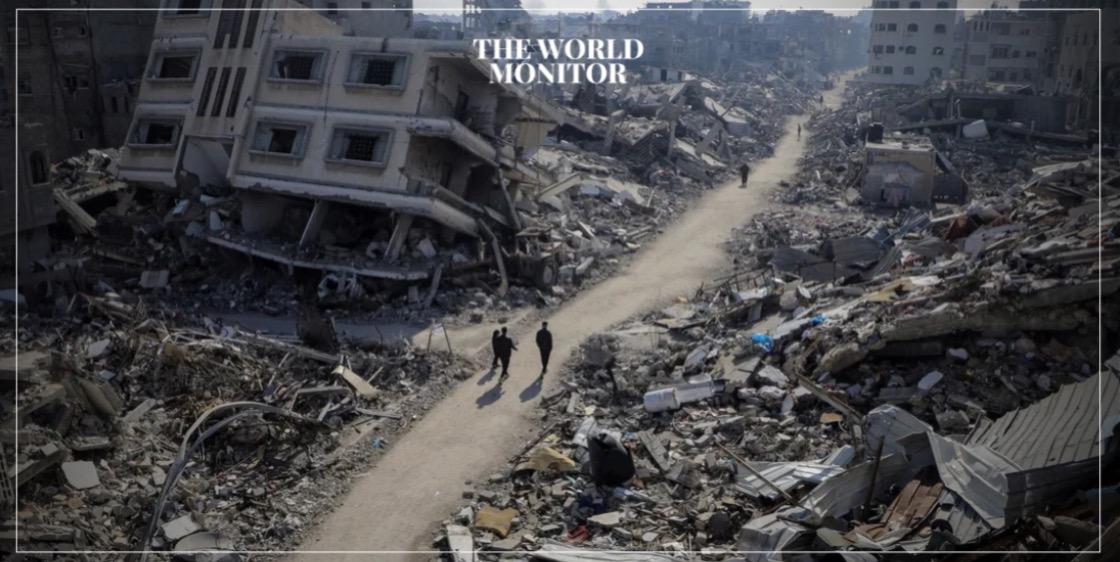Minister of National Economy, Mohammed Al-Amour, discussed on Wednesday with the Regional Director of the World Bank in Palestine, Stefan Ekelund, prospects for mutual cooperation in economic development amid ongoing challenges, amidst the ongoing escalation in Gaza.
Both sides referred to the “Rapid Damage and Needs Assessment” report, which assessed the damage to buildings and vital infrastructure in the Gaza Strip, estimating the damage at around $18.5 billion, equivalent to 97% of the total GDP of Palestine in 2022.
During the meeting held at the ministry’s headquarters in Ramallah, Minister Al-Amour urged the international community to pressure Israel to halt the ongoing escalation since October 2023 and to open all crossings to deliver aid to the Gaza Strip.
The minister briefed the World Bank on the government’s agenda, especially in providing humanitarian and relief aid to the population in the Gaza Strip, recovery, reconstruction, financial situation, its impact on economic stability, and institutional reform, expressing appreciation for the support provided by the World Bank.
They reviewed the support programs implemented by the World Bank in various fields, emphasizing the importance of these programs and the necessity of enabling the government to implement its programs, especially in the face of significant challenges, including the ongoing Israeli piracy of clearance revenues.
At the end of the meeting, they reaffirmed the continuation of mutual cooperation and coordination in implementing programs and projects to contribute to economic development.
The situation in Gaza is dire, characterized by extreme destruction and humanitarian crisis. As of the latest reports, there has been significant damage to infrastructure and residential areas, with a high proportion of homes either destroyed or severely damaged. The ongoing conflict has also led to substantial casualties and disruption of daily life, including access to food, water, and healthcare.
Over 34,000 people have been reported killed, with a substantial portion being women and children. The health and humanitarian situation is worsening, with a critical shortage of medical supplies and facilities. Many hospitals have been damaged or are functioning minimally, compounding the crisis caused by the conflict.
The food security situation is particularly severe. It is reported that a large fraction of the population is facing catastrophic levels of food insecurity, with widespread starvation and acute malnutrition, especially among children. The destruction of agricultural areas and fishing fleets has further devastated Gaza’s ability to sustain itself, and the blockade has severely restricted the import of essential goods, including food and medical supplies.
There have been international calls for ceasefires and aid delivery, but political complexities and ongoing hostilities have hampered these efforts. The situation is described by many international observers and human rights organizations as a grave humanitarian disaster needing urgent intervention.


